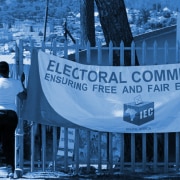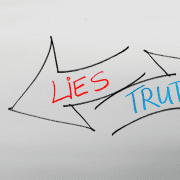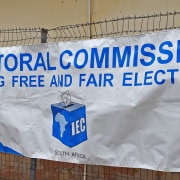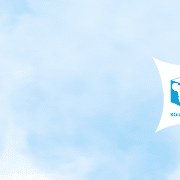|
Getting your Trinity Audio player ready...
|
The Political Party Funding Act (PPFA), which came into force on 1 April, has yielded its first quarterly report. Out of over 500 registered parties, only three – the ANC, DA, and ActionSA – made declarations of qualifying donations received from donors.
On 9 September the Independent Electoral Commission released the 2021/22 first quarter party funding disclosures report – just three pages long – in accordance with the PPFA and its supporting regulations.
“Our political parties funding regime makes it peremptory for all registered political parties to disclose to the commission all donations above R100 000 threshold in a year,” said the commission in a statement. “On the upper end of the threshold, no donations may be made by a single donor above R15-million in a year.”
The PPFA also puts specific restrictions on sources of funding for political parties, including the proscription of donations by government departments, state-owned entities and foreign governments and agencies. Other restrictions relate to the amount and purpose for which foreign entities can make direct donations to registered political parties.
The total value of declared donations in the first quarter, according to the report, is R30 008 841.74.
The ANC and the DA declared individual donations received of R10 720 000.00 and R15 983 751.48 respectively. Action SA declared total direct donations amounting to R3 305 090.26.
The ANC’s biggest funder, with a substantial R5-million monetary donation, was United Manganese of Kalahari, a mining company operating in the Northern Cape. The company is partly owned by the Renova Group of Vladimir Putin associate Viktor Vekselberg.
The DA received a whopping R15-million from Mary Slack, the daughter of Harry Oppenheimer – her donation accounted for 94% of the party’s total declared funding. Through her foundation Mary Slack and Daughters, the well-known philanthropist had also contributed R1-billion to the Solidarity Fund for Covid-19 relief, soon after the fund was established.
ActionSA, meanwhile, declared its biggest donor as Martin Moshal, another notable philanthropist from Durban, KwaZulu-Natal.
Two foreign entities made direct donations to political parties during this period, said the commission, adding that the donations complied with requirements set out in section 8 (4) of the PPFA, and that no breach or contravention in this regard was detected at this stage.
Besides the monetary donations, the parties also declared in-kind donations above the R100 000 ceiling.
“Although not all political parties responded, a significant number of them, especially among the represented parties, reported in writing that they did not receive qualifying donations in the reporting period,” said the commission.
Pressure from CW ensured PPFA’s enforcement
Corruption Watch (CW) wrote to President Cyril Ramaphosa in early December 2020, raising concerns that there were potentially interests opposed to the PPFA, and working to ensure that it would not be implemented. If true, the organisation deems such intentions unlawful and unconstitutional, and it is not alone in these concerns. The Presidency responded quickly to confirm that the PPFA would be proclaimed on or before 1 April 2021.
The organisation, along with many others in civil society, notably My Vote Counts, has for several years advocated for greater transparency in political party funding. In addition to advocacy, CW also made written and oral submissions on the Public Funding of Represented Political Parties Act, 103 of 1997 read in accordance with Regulation 10(1) of the Act in 2017, and written and oral submissions on the Draft Political Party Funding Bill in 2017 and 2018 respectively.








